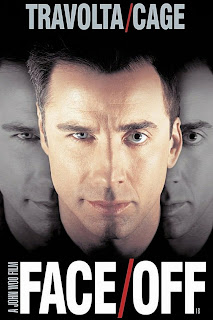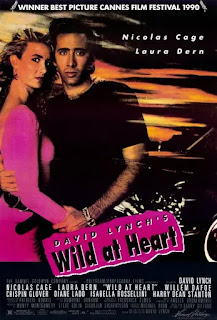The Family Man is a 2000 holiday-drama film starring Nicolas Cage and Téa Leoni, also starring Don Cheadle and Jeremy Piven in supporting roles. Nicolas Cage plays Jack Campbell, a Wall Street executive, whose relationship with his girlfriend Kate (Leoni) 13 years earlier ended with the extended time apart due to Jack's post-college internship in London. After encountering a man (Cheadle) trying to rob a convenience store, who sends Jack to an alternate timeline where he and Kate never ended their relationship. Navigating his new life with Kate, Jack must figure out what he really wants in life - a life filled with meaningful relationship, or his lifestyle of decadence.
The Family Man is a great modern remix of classic holiday stories, namely
A Christmas Carol and
It's a Wonderful Life. Jack Campbell is the Ebenezer Scrooge of this story, a man who is consumed by greed and sees the Christmas holiday as an impediment to the function of his business, and also a man who sees all of his personal relationships as transactional. Jack must be shown what his alternate self found of value in order to reevaluate his life decisions once he comes back to his point of origin. I make a comparison to
It's a Wonderful Life in the opposite sense: Jack's glimpse into the other reality is not a glimpse of the lives of others around him ever without his presence, but it is a reflection of what his life is if he chased what he should value in life more so than his current shallow life. Usually when Nic Cage plays an "every man" type of character, he is wildly out of place. His predicament in this movie is what subverts that for Cage; he is still an every man, but he is so wildly out of his environment, literally and figuratively, that it plays to his advantage. The shock to Jack's system makes him the oddball in a situation where this is the normal. I thought that the daughter of Jack and Kate figuring out that he is not the Jack that everyone else knows was a great touch as children are incredibly perceptive to changes in their environment. Her helping Jack reorient his life so that he can be a functioning adult was not only charming, but funny. The infrequent visits by what is seemingly a supernatural being portrayed by Cheadle are always filled with humor, which plays on Jack's initial anger about his relocation, but later is still angry to see Cheadle, this time not wanting to go back to his empty life. Jeremy Piven is a good every man and confidant to the alternate Jack, and is someone who always tries to keep his best friend on the right track. Last, but not least, we have Téa Leoni's performance as Kate. Whatever relationship that Jack and Kate had in this reality was the best relationship that anyone could ask for, and it really shows in her performance once Jack is planted in the middle of her life. In my eyes, Leoni steals the show as she makes the audience able to forget that we are viewing a movie and lets us get lost in the story.
I have seen The Family Man years ago when I picked up the BluRay and quite enjoyed it. I knew that the movie dealt with finding the joy and meaning in the relationships that you have, but I didn't imagine that it was going to give me such a reaction as it did. I think the older that I get, the closer I get to the ages and life circumstances of Jack and Kate in the glimpse of reality, the more I relate to the message of the movie. Even though this movie spans more than just the Christmas holiday - the movie actually spends as little time possible on the actual holiday - the film now hold a place on my shelf for a Christmas movie. It's not the best choice for a Christmas movie, but it is another choice in the sea of tried and tested, and frankly overplayed staples. It also sits at the height of Cage's ascent to stardom and is a nice gem out of the rough that is to follow in later years. I would definitely recommend cozying up on the couch with a blanket and spending some time getting lost in this fantasy story, a story that takes what works with older stories and making a charming modern twist on those revered and dominant holiday stories.



.jpeg)

.jpeg)





.jpg)






